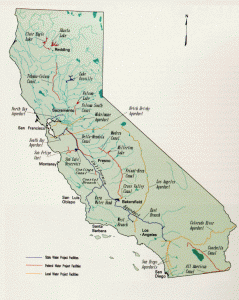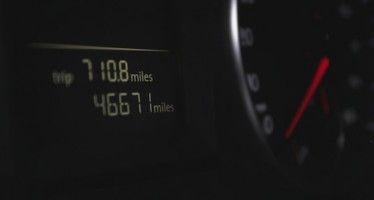Water reform re-Hatched in U.S. Senate
By Wayne Lusvardi
On Wednesday April 25, Sen. Orrin Hatch, R-Utah, introduced an omnibus energy and federal land use bill. It would combine bills that have passed through the House but have stalled in the Senate. Part of that package would include H.R. 1837.
Senator Hatch’s bill would be titled the West Act. It would combine three bills calling for expedited permits to drill in the Gulf of Mexico, the Farm Dust Prevention Act that would prevent the EPA from regulating farm dust among many other bills and several land bills.
H.R. 1837 is Wood Mulcher to Feinstein’s H.R 146
HR 1837 would unwind the provisions of Dianne Feinstein’s bill, H.R. 146, the San Joaquin River Restoration Settlement Act, which passed in 2009.
Feinstein’s H.R. 146:
* Took water from Central Valley farmers to redistribute to tourist, commercial, fishing, recreational, and real estate interests in the San Joaquin River under the guise of environmental restoration and mitigation;
* Raised water rates for Central Valley farmers to subsidize fishing and recreational “restoration;” and
* Required that renewal of agricultural water contracts had to go through an environmental review for distribution of “mitigations” to special interests.
Feinstein’s H.R. 146 could not muster enough votes to pass the U.S. Senate in 2008 on its own. It was passed as a trailer bill as part of the Omnibus Lands Act of 2009.
Political Logrolling
What Senator Hatch is doing is called political logrolling. This is a practice common in legislatures. It involves two or more legislators agreeing to trade their vote on one bill they care about for their home district in return for their vote on a bill they may actually oppose.
Imagine a large log too big for one person to roll. But if someone else gets on the other end of the log and also pushes, the unmovable log can be rolled along. This is how the term political logrolling got its name.
Logrolling often comes into play when a politician is free of control of his national party. This may happen when a legislator is a “lame duck” candidate in the last years of his term in office or when he is running for re-election and needs a jobs bills in his home district. Local projects, such as dams, bridges, highways, etc. are often pushed through Congress by logrolling. They are also often called “earmarks.”
H.R. 1837 would undo earmarks to special interests in Feinstein’s H.R. 146.
Feinstein the Flip-Flopper
Feinstein has flip-flopped several times on H.R. 1837. She waved a white flag in March 2012 by relenting to brokered negotiations over H.R. 1837. By the end of March, she ended the truce and re-started the water war over H.R. 1837. By mid-April, she offered Central Valley farmers 45 percent as a minimum of their federal water contract. However, this was more political pandering because the water rights would be revocable.
Undoing the Legislative Logjam
It’s an election year. Hatch is up for a tough re-election fight in Utah. And Feinstein is runnning for re-election in California.
Federal legislators need to “bring home the bacon” to their home districts. To do this they may have to log of bills some of which they are opposed to. One of those logs may be floating down the San Joaquin River.
Related Articles
CA to roll out pay-per-mile pilot program for drivers
As state drivers’ changing habits undermined roughly a hundred years of gasoline taxes, California officials debuted a controversial new
Fast Rail's Iffy Ridership Claims
DE C. 1, 2010 By ANTHONY PIGNATARO In one of the many examples of inefficiency surrounding the proposed California High-Speed
Only 54% oppose bullet train? Sheesh
March 22, 2013 By Chris Reed When word came out Thursday night that a new PPIC poll showed the public




